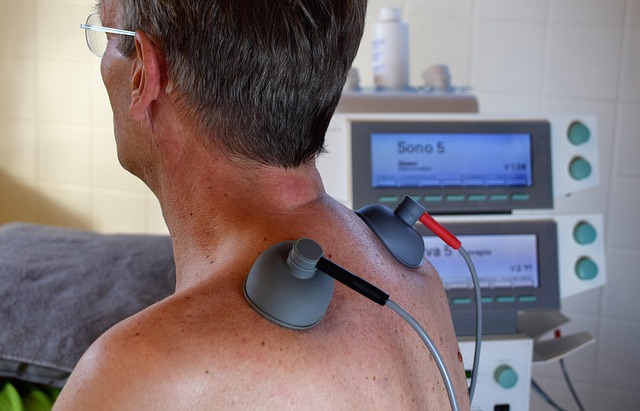Property insurance for medical offices is vital for risk management, protecting against physical damage/loss to buildings and contents from fires, thefts, natural disasters, etc. Understanding coverage types like RCV vs. ACV, business interruption, and regular policy reviews ensures operational continuity. Liability policies are also crucial, covering potential legal risks and financial losses from medical errors or malpractice. Exclusions for natural disasters and specific malpractice cases must be understood. Choose specialized insurers with strong reputations and compare options focusing on building, equipment, inventory, and liability protection. Case studies highlight the importance of such insurance in facilitating swift recovery and minimizing disruption to patient care.
In the dynamic landscape of healthcare, ensuring comprehensive protection for your medical practice is paramount. This article explores the critical aspects of property and liability policies tailored for medical offices, delving into essential coverage areas like property insurance and managing legal risks. From understanding specific risk factors to selecting the right provider, you’ll gain insights on safeguarding your assets and reputation. We also present real-world case studies emphasizing the vital role of these policies in mitigating potential crises.
- Understanding Property Insurance for Medical Offices
- Types of Property Damage Coverage
- Liability Policies: Protecting Your Practice from Legal Risks
- Essential Exclusions to Watch Out For
- How to Choose the Right Insurance Provider
- Case Studies: Real-World Examples of Policy Importance
Understanding Property Insurance for Medical Offices

Property insurance for medical offices is a crucial component of risk management for healthcare providers. It protects against physical damage or loss to the building and its contents, which can include specialized equipment, records, and inventory. Medical offices are particularly vulnerable to risks like fire, theft, or natural disasters, making comprehensive property coverage essential.
When considering property insurance for medical offices, it’s important to understand the different types of coverage available. Policies typically include replacement cost value (RCV) or actual cash value (ACV) to determine how much is paid out in case of damage. Additional protections such as business interruption coverage can help maintain operational continuity during recovery from a covered event. Regular reviews and updates to policy limits ensure that the insurance keeps pace with changes in the office’s assets and risks.
Types of Property Damage Coverage

Medical practices, much like any other business, require comprehensive property and liability coverage to mitigate risks and ensure financial stability. When it comes to property damage, various types of coverage are available under property insurance for medical offices. One such crucial aspect is protection against physical damage to the building itself, including structures and personal property. This includes coverage for events like fires, floods, storms, or vandalism, which can cause significant financial loss and disruption to medical practices.
Additionally, property insurance often includes business income continuity coverage, which ensures that operations can continue during periods of restoration after a covered event. This is essential for medical offices as any interruption in service could lead to revenue loss, legal liabilities, and patient dissatisfaction. Therefore, when choosing a policy, businesses should carefully consider the extent of property damage coverage to ensure they are adequately protected against potential risks.
Liability Policies: Protecting Your Practice from Legal Risks

Liability policies are an integral part of protecting your practice from potential legal risks and financial losses. As a healthcare provider, you face various liability concerns, including medical malpractice claims, personal injury, or property damage incidents within your medical office. These policies offer financial safeguards against such occurrences, ensuring that your practice can withstand legal battles and continue operating smoothly.
When considering property insurance for medical offices, it’s crucial to understand the specific coverage options available. General liability insurance is essential, providing protection against claims of bodily injury or property damage. Additionally, professional liability insurance (also known as malpractice insurance) shields you from financial consequences arising from medical errors or omissions. Customizable policies cater to different practice sizes and needs, ensuring comprehensive risk management for your medical office.
Essential Exclusions to Watch Out For

When considering property and liability policies for your medical practice, it’s crucial to be aware of certain essential exclusions that could significantly impact your coverage. Property insurance for medical offices often comes with a range of standard exclusions designed to protect the insurer from undue risk. Among these, natural disasters like earthquakes, floods, or severe storms are common exclusions, requiring separate coverage through specialized policies.
Additionally, liability policies typically exclude incidents arising from intentional acts, such as assault, battery, or willful neglect. Medical malpractice, including negligence in treatment or diagnosis, is also usually excluded and requires specific medical malpractice insurance. Understanding these exclusions is vital to ensuring your practice is adequately protected.
How to Choose the Right Insurance Provider

When selecting an insurance provider for your medical office, it’s crucial to consider several factors. Look for companies specializing in property insurance for medical offices, as they understand the unique risks associated with healthcare facilities. Check their reputation, financial stability, and customer reviews to ensure a reliable and trustworthy partner.
Additionally, review the coverage options and policy details carefully. Property insurance should protect your physical assets, including buildings, equipment, and inventory, from damage or loss. Ensure the provider offers comprehensive liability coverage as well, safeguarding against potential medical malpractice claims and other legal issues that may arise in a healthcare setting.
Case Studies: Real-World Examples of Policy Importance

In the dynamic landscape of healthcare, where practices must constantly adapt and evolve, having robust property and liability policies in place is non-negotiable. Case studies from real-world scenarios highlight the paramount importance of these safeguards. For instance, consider a medical office that prides itself on state-of-the-art equipment and cutting-edge technology. Despite meticulous maintenance routines, an unexpected fire breaks out, causing significant damage to both buildings and equipment. Thanks to comprehensive property insurance for medical offices, the practice is able to swiftly cover repair costs, minimize business disruption, and ensure continuity of patient care.
Another scenario involves a healthcare provider facing a liability suit due to an alleged medical error. Fortunately, their robust liability policy provides legal defense coverage, shielding them from potentially devastating financial strains. These real-life examples underscore the critical role that tailored property insurance for medical offices and liability policies play in safeguarding practices against unforeseen circumstances, enabling them to focus on delivering quality patient care.
